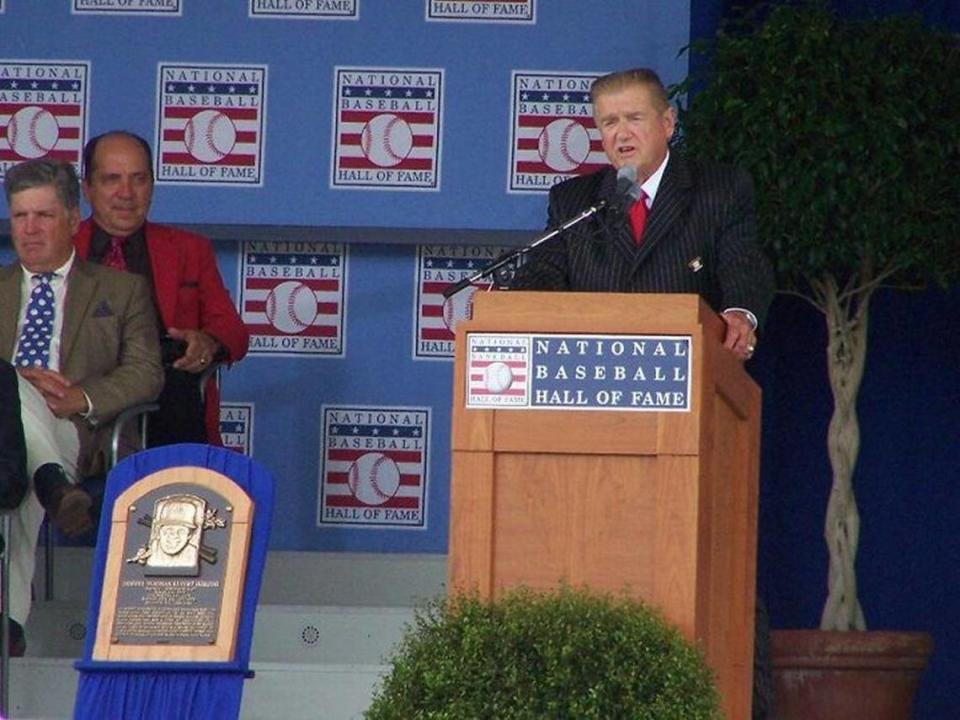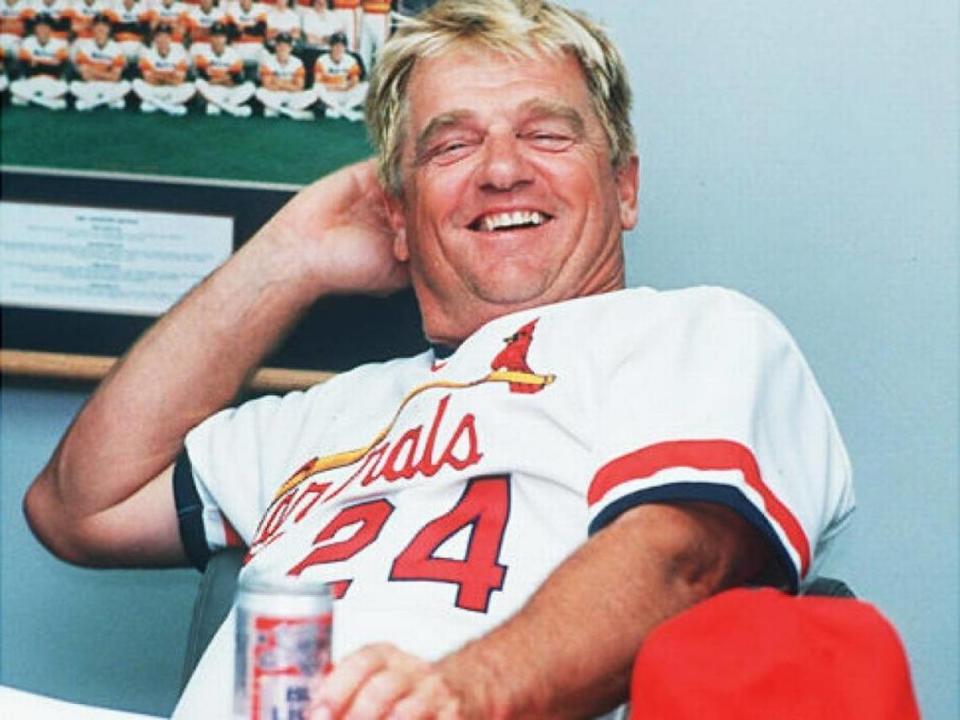New Athens native, St. Louis Cardinals legend Whitey Herzog dies at 92
Whitey Herzog, the metro-east native who brought the St. Louis Cardinals back from the dismal 70s and manage them to three National League pennants and a World Series championship in the 80s, has died. He was 92 years old.
The news was initially broken by longtime St. Louis sportscaster and former KSDK sports director Jay Randolph and confirmed by the team to BND Cardinals columnist Jeff Jones Tuesday.
Herzog’s family issued a statement through the team: “Whitey spent his last few days surrounded by his family. We have so appreciated all of the prayers and support from friends who knew he was very ill. Although it is hard for us to say goodbye, his peaceful passing was a blessing for him.”
He was born Dorrel Norman Elvert Herzog in 1931 and was widely known around his hometown of New Athens as “Relly.” As a minor leaguer with the McAlester, Oklahoma Rockets in 1949, he was called “Whitey” by sportscaster Bill Speith for his light-colored hair. The nickname stuck.
Herzog is a graduate of New Athens High School, where he starred in both baseball and basketball, and was a standout in the Clinton County Baseball League by the time he was 14. He went on to an eight-year major league playing career, batting .257 lifetime as a utility player for the Washington Senators, Kansas City Athletics, Baltimore Orioles and Detroit Tigers.
Influenced by Casey Stengel, it was as a manager and front office executive that Herzog made his mark in the game.
After leading the Kansas City Royals to three straight American League Championship Series in the late 1970s, he joined the Cardinals as both field manager and general manager, a rare dual role afforded him by team owner and Anheuser-Busch Brewery President Gussie Busch.
“I’ve never seen such a bunch of misfits,” Herzog said. “Nobody would run out a ball. Nobody in the bullpen wanted the ball.” There were drugs and bad attitudes in the clubhouse, Peter Golenbock wrote in “The Spirit of St. Louis,” and Herzog told Busch a housecleaning was needed.
“Keep me posted,” Busch answered.
With Busch’s blessing, Herzog pulled off a whirlwind three days of wheeling and dealing to rebuild the Cardinals’ roster.
From Dec. 7, 1980 to Dec. 10, 1981, he initiated eight transactions that sent 31 players either coming or going. Among them were five Gold Glove winners, six Silver Sluggers, 13 All-Stars, three Cy Young Award winners, two Most Valuable Players and four current Hall of Famers.
Then he adopted a daring brand of baseball that emphasized speed and defense, designed for the fast artificial surface and expansive dimensions of Busch Stadium II. Media and peers called it “Whitey Ball.”
The Cardinals had immediate success, winning an NL East Division best 59 games in the strike-shortened season of 1981. In 1982, without a 20-game winner on the pitcher’s mound and only one player in the lineup with more than 12 home runs (George Hendrick with 19), the Cardinals defeated the Milwaukee Brewers in a memorable seven-game World Series.
Under Herzog, the speedy, slick-fielding Cardinals won additional pennants in 1985 and 1987.
The Cardinals’ success, the thrill of Whitey Ball and Herzog’s personality and accessibility cemented St. Louis’s reputation as a hard-core baseball-loving town. Despite playing their 81 home games in a mid-sized media market, Herzog’s Cardinals rose to the top of league attendance. By 1987, they drew more than 3 million fans, a benchmark they’ve rarely fallen below since.
“Whitey and his teams played a big part in changing the direction of the Cardinals franchise in the early 1980s with an exciting style of play that would become known as “Whitey Ball” throughout baseball,” said Cardinals’ Chairman and Chief Executive Officer Bill DeWitt, Jr. in a statement. “Whitey loved the Cardinals, their fans, and St. Louis. He will be sorely missed.”

Herzog was elected to the National Baseball Hall of Fame in 2010 with an all-time record of 1,281-1,125 (.532) over 18 seasons. His 822 wins with the Cardinals are third most in franchise history (Tony La Russa had 1,408 and Red Schoendienst had 1,041).
“Whitey Herzog was one of the most accomplished managers of his generation and a consistent winner with both ‘I-70’ franchises,” MLB Commissioner Rob Manfred said in a statement. “He made a significant impact on the St. Louis Cardinals as both a manager and a general manager, with the Kansas City Royals as a manager, and with the New York Mets in player development. Whitey’s Cardinals’ teams reached the World Series three times in the 1980s, winning the Championship in 1982, by leaning on an identity of speed and defense that resonated with baseball fans across the world.
“On behalf of Major League Baseball, I extend my deepest condolences to Whitey’s family, his friends across the game, and the fans of the Cardinals and the Royals.”
Since his retirement from baseball, he staged an annual golf outing at Forest Hills Country Club to raise money for various causes, including the construction of Whitey Herzog Field at Citizens Park in Belleville. He returned to the field frequently to support Belleville’s American Legion Baseball program.
Herzog was accessible at countless banquets and celebrations both in St. Louis and the metro-east, a reliable fund raiser for various causes, and a recognizable commercial pitchman for local businesses.
Herzog is survived by his wife of 71 years, Mary Lou Herzog, their three children; Debra, David and Jim, and their spouses; nine grandchildren and 10 great grandchildren.


